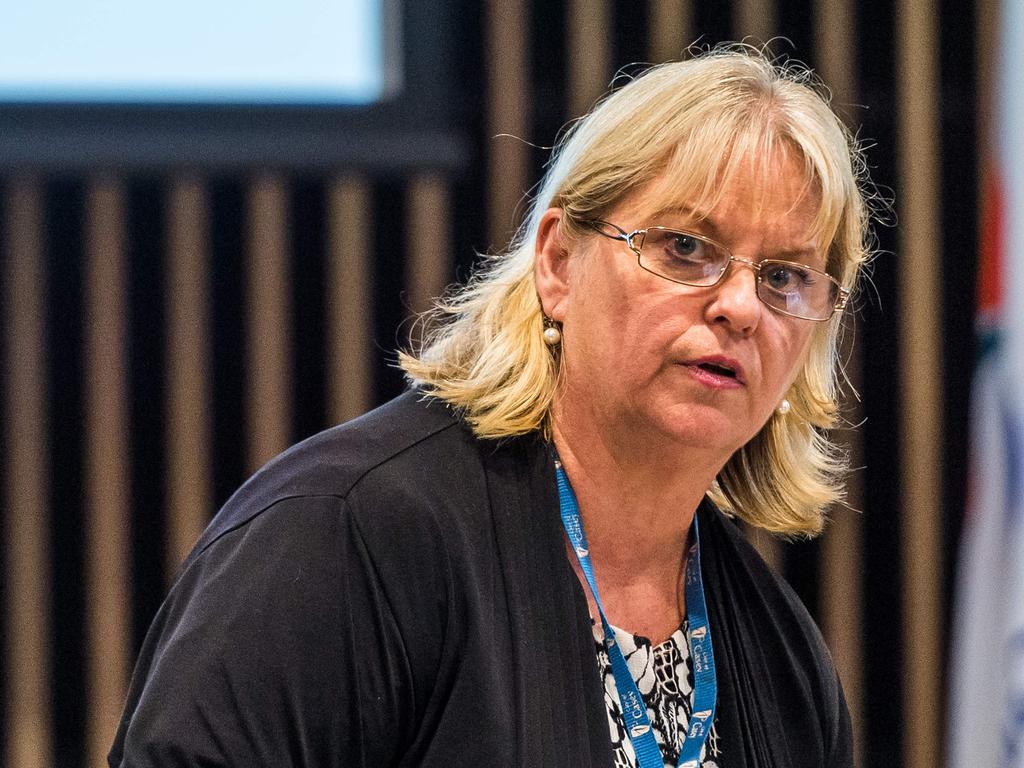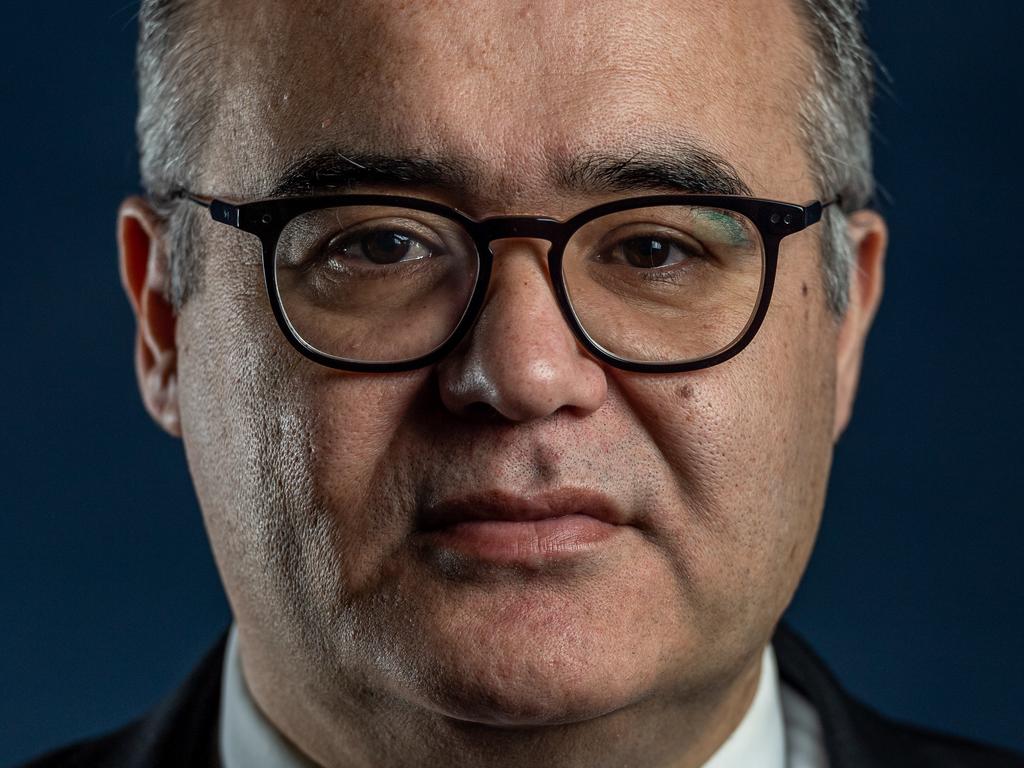Tragic mayor: a second warning missed by IBAC
The watchdog charged with monitoring Victoria’s anti-corruption agency was also warned of witness suicide risk, but it failed to act.
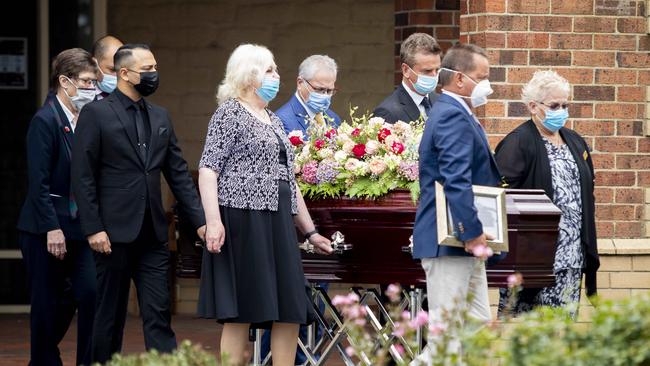
The Victorian Inspectorate, the agency charged with monitoring the state’s anti-corruption watchdog, was warned nine months before a former mayor took her life that witnesses in a marathon investigation were at risk of suicide.
The Australian has obtained a copy of a complaint to the VI, received on April 18, 2021, warning that lives were in danger as a result of the Independent Broad-based Anti-corruption Commission’s two-year probe into Casey Council and a property developer.
“I am also aware of two separate witnesses who seriously contemplated and planned suicide arising from the pressure of the IBAC investigations, and were only prevented from doing so by the timely intervention of caring family and friends,” the complaint, written by a witness in the probe, states.
Former Casey mayor Amanda Stapledon died by suicide on January 17-18, days after receiving a draft report from IBAC on its investigation into allegedly corrupt property deals.
The VI took seven months to respond to the complaint and its 10-page letter, dated November 22, 2021, signed by Cathy Cato, the agency’s executive director (legal and integrity), cleared IBAC.
The emergence of the warning to the VI comes after The Australian revealed on Wednesday that IBAC was told in March 2020 that several witnesses were at risk of self-harm.
In its response, the VI found IBAC was operating within its legal framework and stated it “does not consider your complaint warrants further action” before going on to say that “there is no further role for this office in relation to your complaint” and “this file is now closed”.
The VI did not specifically address the suicide warning and went on to clear IBAC’s conduct, stating “you have shared your view that all Operation Sandon witnesses should have been examined privately away from media scrutiny, to avoid ‘ruining the lives of a range of witnesses’, and that IBAC should be ‘admonished for not protecting witnesses’. The VI believes the responses in relation to public hearings above address this issue in a legislative context, and reiterates its view that IBAC have acted lawfully.”
Shortly after last month’s death of Ms Stapledon, the complainant again contacted the VI, accusing it of having “blood on its hands” for failing to act on the original complaint from April 2021. The following day, the VI contacted the complainant and invited them to conduct an official interview.
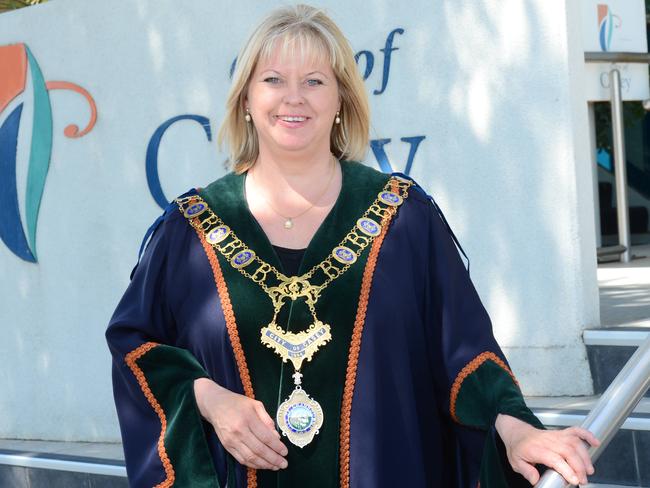
On Wednesday, the VI declined to respond to questions from The Australian on Ms Stapledon’s death, Operation Sandon and the April 2021 complaint saying it was legally prevented from answering. “The Victorian Inspectorate offers its deepest and most sincere condolences to family and loved ones of Ms Stapledon,” VI Inspector Eamonn Moran said.
Mr Moran said the welfare of witnesses and complainants was an important consideration for the VI and in 2018 it had published a special report on the welfare of witnesses subject to the exercise of coercive powers by integrity agencies. “Since then, the VI has continued to engage proactively with the integrity agencies it oversees, including IBAC, in relation to the protection of witness welfare.”
The complainant told The Australian that while she didn’t name at-risk witnesses in the complaint, she was referring to her close friend Ms Stapledon. “I said I warned you this would happen, now she’s dead, and her blood is on your hands and the hands of IBAC. What are you going to do to stop this happening to anyone else?” she said.
The VI complainant told The Australian that the most psychologically damaging aspect of IBAC’s Operation Sandon was its marathon length. “It was the not knowing and the fact it dragged on and on that was so damaging.
“IBAC could have moved it along, and … wound all this up; instead, it has dragged it out simply because they were trying to find information that doesn’t even exist, and in doing so they have to spread a wider and wider net.”
The complainant said she was now going to fight to clear Ms Stapledon’s name.
“It’s never going to bring Amanda back, but what I want to do is try and clear her reputation, because she is not around anymore to do that.
“Amanda didn’t commit suicide because she had done something terrible, she committed suicide because she has spent the past two years being constantly under extreme pressure of not knowing what was going to happen next.”
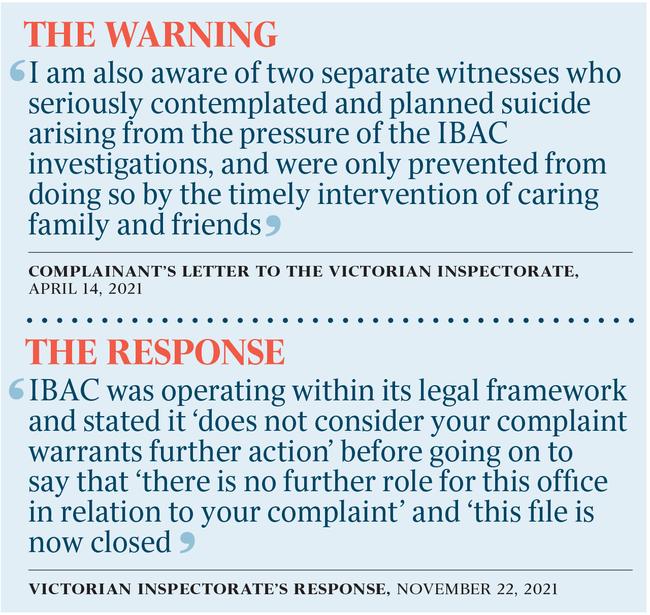
The complainant claimed the VI had assessed her complaint only from a narrow, legal perspective and not paid enough regard to the mental health impacts on witnesses.
“The VI’s response was to put IBAC’s conduct through a legal framework. Their view seemed to be ‘IBAC did this because they are allowed to’,” she said.
“I said I realise that IBAC can do this, but should they, given the incredible mental health toll it has had on so many.”
IBAC’s conduct was questioned at Ms Stapledon’s funeral on Wednesday.
Hundreds of friends and family who turned out at the Berwick Church of Christ heard a pointed reference to IBAC from her friend and former vicar David Powys.
“How can we safely foster the participation in politics of ordinary citizens?
“And what should we expect of those who order and conduct corruption inquiries?” he said, before suggesting that the corruption investigation, and not mental illness, was to blame for her suicide.
“I am not going to seek to answer these questions, but I hope that others will.”
Friends and former Casey colleagues paid tribute to the much-loved former mayor during the service, remembering her as a loyal friend and loving mother who worked hard to improve the lives of the disabled and the disadvantaged.
Colin Butler suggested during his tribute that Ms Stapledon’s trusting nature had been exploited by some.
“Amanda, you believe in everybody, you believe everything everybody tells you, because of your faith, you think they are telling the truth,” he said.
“Just be careful. You need to be streetwise. There are people who will take advantage of you, there are people who will use you and you won’t know because of your qualities.
“I think we got the answer to that.”
If you or someone you know is at risk of suicide, call: Lifeline: 13 11 14 or lifeline.org.au; Beyond Blue: 1300 22 4636 or beyondblue.org.au


